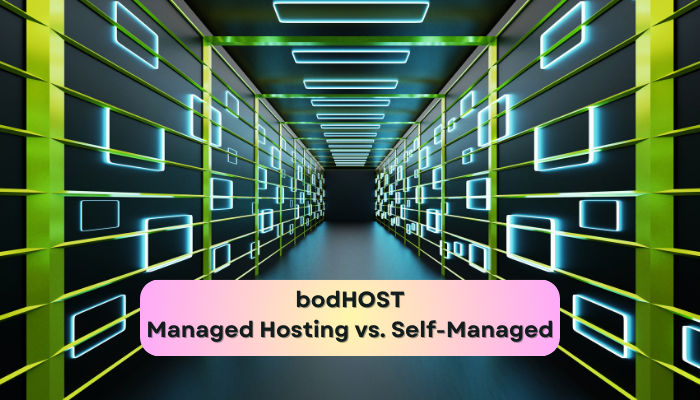Whenever we create a website or a blog, the first thing that comes to our mind is hosting. We think about the best hosting provider so that our website becomes available to the world. A good hosting service is one of the essential parts of an online project, as it will collect the data and make the website accessible all over the globe.
While selecting a hosting provider you should consider all the possible factors such as performance, scalability, high uptime, speed, security, free migration, 24×7 support, etc. Because this is the first and last decision. If you choose the wrong hosting provider, you may experience disastrous effects on your website and ultimately your business. Therefore, this foundation should be strong. You will never build your house on a shaky surface, right? Similarly, when launching a business, it is crucial to select a hosting provider that offers top-notch services. Managed Linux VPS hosting provides a secure and efficient solution for your website’s needs.
Businesses of all sizes rely heavily on their online presence. Whether it is a small e-commerce store or a large enterprise website, having a reliable and efficient hosting solution is crucial. However, with the plethora of hosting options available, it can be challenging to determine which one is the best fit for your business. Two popular options are managed hosting and self-managed hosting. In this blog post, we will explore the differences between the two and help you decide which one is right for your business.
Let us understand these two types of hosting services-
1. Managed Hosting
Managed hosting is a type of hosting where the hosting provider takes care of all the technical aspects of running a website. This includes server maintenance, security updates, and software installations. With managed hosting, you do not want to worry about managing the server yourself, as the hosting provider handles everything for you.
One of the chief advantages of managed hosting is that it lets you focus on your business without worrying about the technical aspects of running a website. This can be particularly beneficial for small businesses or startups that do not have the resources or expertise to manage a server themselves.
Another advantage of managed hosting is that it typically comes with a higher level of support. Managed hosting providers often offer 24/7 support, so if you run into any issues with your website, you can get help quickly.
However, managed hosting can be more expensive than self-managed hosting, as you are paying for the convenience of having someone else manage the server for you. Additionally, with managed hosting, you may have less control over the server configuration, which could be a drawback for businesses that require a high level of customization.
Managed hosting comes in various types, each catering to different needs and preferences, such as shared, dedicated, cloud, VPS, WordPress, e-commerce, and managed hosting with additional services.
2. Self-Managed Hosting
Self-managed VPS hosting, on the other hand, is a type of hosting where you are responsible for managing the server yourself. This includes installing software, configuring security settings, and performing regular maintenance tasks.
One of the chief advantages of self-managed hosting is that it gives you more control over your server configuration. This can be mainly supporting businesses that require a high level of customization or have specific security requirements.
Another advantage of self-managed hosting is that it can be more cost-effective than managed hosting, as you are not paying for the convenience of having someone else manage the server for you.
However, self-managed hosting demands a higher level of technical expertise, as you will need to be adept at tasks such as software installation and security configuration. This can pose a challenge for businesses that lack the necessary in-house expertise.
Self-managed hosting comes in various types, including shared, dedicated, cloud, VPS, WordPress, e-commerce, and self-managed hosting with additional services.
The question is, which one is right for your business?
The question of which hosting option is right for your business is a critical one, and the answer depends on your specific needs and resources. If you are a small business or startup without the resources or expertise to manage a server yourself, managed hosting may be the best fit. Managed hosting allows you to focus on your business without worrying about the technical aspects of running a website.
On the other hand, if you have in-house technical expertise and require a high level of customization or specific security requirements, self-managed hosting may be the better option. Self-managed hosting gives you more control over your server configuration and can be more cost-effective than managed hosting.
Ultimately, the decision comes down to your specific needs and resources. By carefully considering the pros and cons of each hosting option, you can choose the one that is right for your business.
Conclusion-
When it comes to WordPress hosting, both self-managed and managed plans are feasible options, each with its unique advantages. If you have a solid background in WordPress development and server administration, self-managed hosting might be the right choice for you. However, if your primary goal is to grow your website without being bogged down in hosting details, managed plans could offer a smoother path forward. Consider bodHOST’s managed VPS hosting for superior performance.
In this article, we have delved into the specifics of both options, giving you the information you need to make an informed decision. Armed with this knowledge, you can confidently launch your WordPress website and focus on achieving your online goals.
Click here to read more blog!




